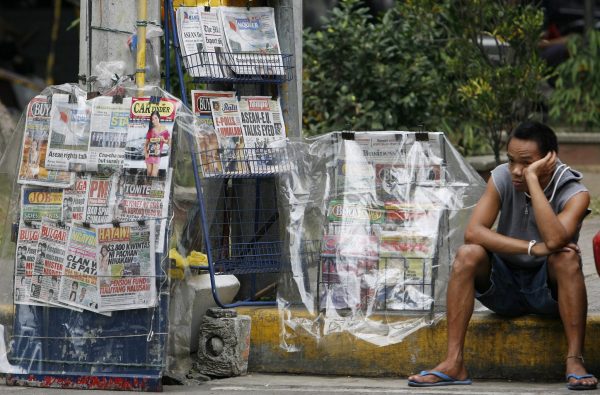On 25 June 2019, Singapore’s Protection from Online Falsehoods and Manipulation Act (POFMA) was gazetted into law. The law empowers any Singaporean government minister to issue a range of corrective directions against online ‘falsehoods’ deemed to be against the public interest.
This new law follows closely on the back of Malaysia’s 2018 Anti-Fake News Act enacted under the previously long-ruling Barisan Nasional (BN) regime. Although the newly victorious Pakatan Harapan (PH) alliance moved to repeal the legislation soon after being elected into government in May 2018, the repeal effort was blocked by Malaysia’s upper house of parliament, which is still dominated by BN-appointees.
Beyond these two countries, other Southeast Asian states have also implemented novel ‘fake news’ legislation. Thailand adopted the Computer-Related Crime Act in 2016, a law that equips the government with the ability to clamp down on anyone propagating information it deems ‘false’. In the Philippines, an anti-‘fake news’ bill was proposed in 2017 in the Senate. This was eventually incorporated into an updated version of the Penal Code where it is now ‘unlawful for any person to maliciously offer, publish, distribute, circulate or spread false news and information’.
Southeast Asian governments have justified these new laws in the name of preserving national security. They maintain that such laws help citizens learn ‘correct’ information, preserve societal stability and guard against foreign intervention in domestic politics. Indeed, in a region where so much of the population receive their news through social media networks such as Facebook, the spread of disinformation or misinformation has had drastic consequences. Recent analyses suggest that clearly false and misleading social media posts have played a part in inciting ethnic cleansing in Myanmar and violent riots in Indonesia.
But critics of these laws argue that a secondary — and more pernicious — effect of such legislation is to bolster a government’s censorship toolkit while increasing self-censorship among the public. They argue that Singapore’s POFMA, for example, over-invests power in the executive by allowing it to determine what a falsehood is and what is contrary to the public interest. Citizens are less likely to express their political opinions online when they are uncertain about how or whether their particular instance of political expression contravenes the law.
Can new legislation regulate disinformation and misinformation without negative consequences for freedom of speech? In theory, a pragmatic balance can be struck if robust limits to the governments’ powers are written into the law.
But a close examination of recent developments in Southeast Asia suggests reasons to be pessimistic. Even existing legislation is already being used to narrow freedom of speech.
In Myanmar for instance, an entire collection of existing laws, including the colonial-era 1923 Official Secrets Act, have been used against journalists. The December 2017 arrest and imprisonment of Reuters journalists Wa Lone and Kyaw Soe Oo is just one high profile example.
While the journalists were released in May 2019 through presidential pardons, new criminal charges have since been levelled at other news outlets. The independent news outlet The Irrawaddy has been charged for its alleged violation of the Unlawful Associations Act, and Nanda, a reporter for the privately-owned Myanmar Times, was arrested under the Penal Code for allegedly participating in a protest in Mandalay.
These events have resulted in what Human Rights Watch reports as ‘a climate of fear among local journalists’.
Similarly, in the Philippines, Maria Ressa, an internationally-esteemed reporter and founder of Rappler — an independent online news platform consistently critical of the Duterte administration — was arrested on tax fraud charges in November 2018. In February 2019, both Ressa and Rappler were slapped with new charges of cyber libel for a report that was published before the libel law came into effect. Philippine President Rodrigo Duterte himself has made no secret of his dislike for Rappler, publicly accusing the platform of being owned by investors from the United States and for carrying ‘fake news’.
Such examples foreshadow an emerging ‘catch-all’ landscape of legislation with little room for dissenting journalists and ordinary citizens. It is worth recalling that, with the exception of Timor-Leste, all other Southeast Asian countries have fallen into the bottom half of the 2019 World Press Freedom Index.
With press freedoms already on the decline in the region, the enactment of new anti-‘fake news’ laws can only signal that expanding and safeguarding freedom of expression in Southeast Asia continues to be a Sisyphean task.
Elvin Ong is a Postdoctoral Fellow in the Centre for Southeast Asia Research (CSEAR) at the Institute of Asian Research (IAR), the School of Public Policy and Global Affairs, The University of British Columbia.
Isabel Chew is a PhD Graduate Student at the Department of Political Science, The University of British Columbia.

